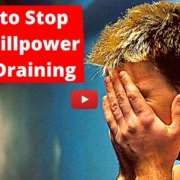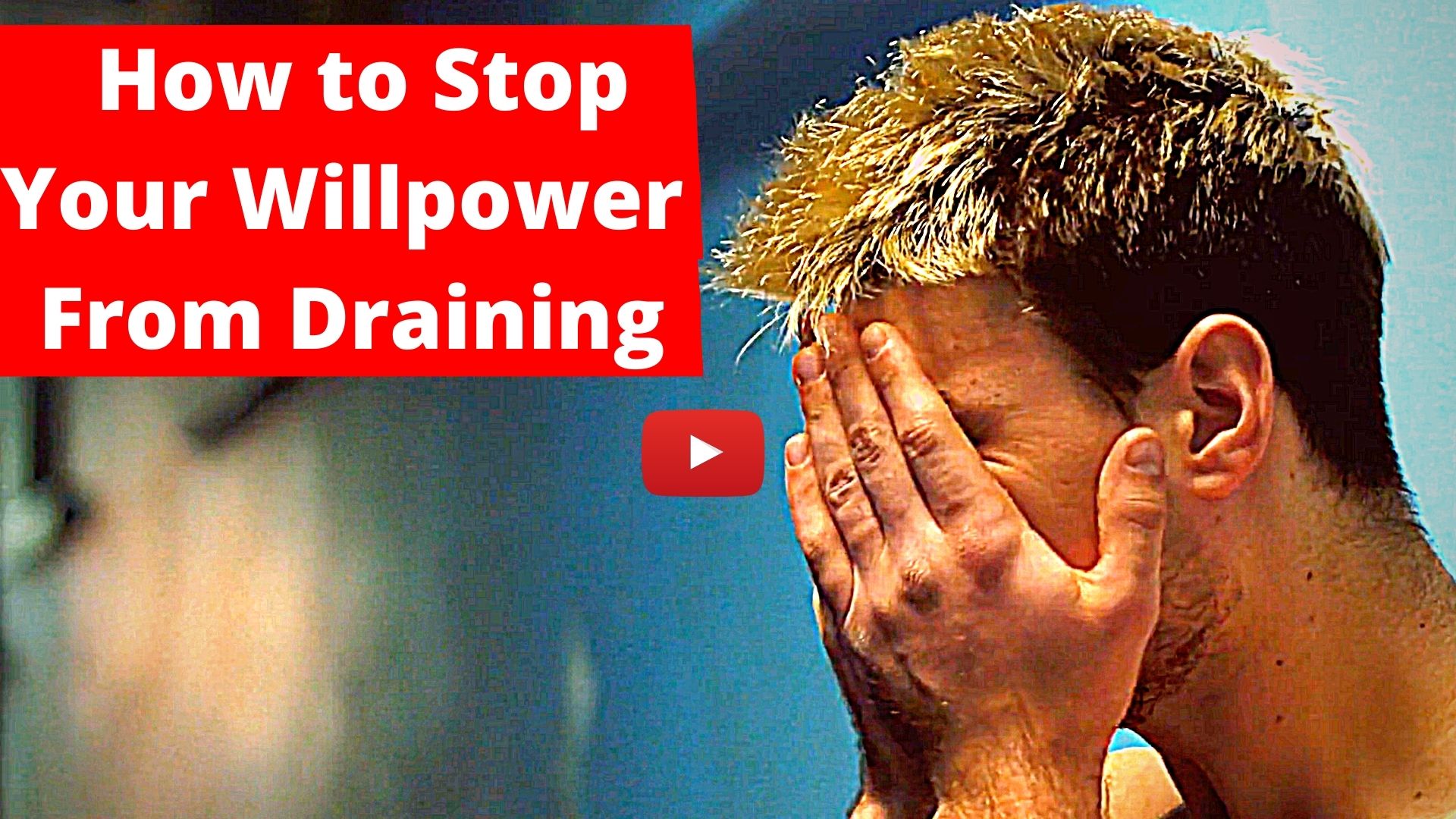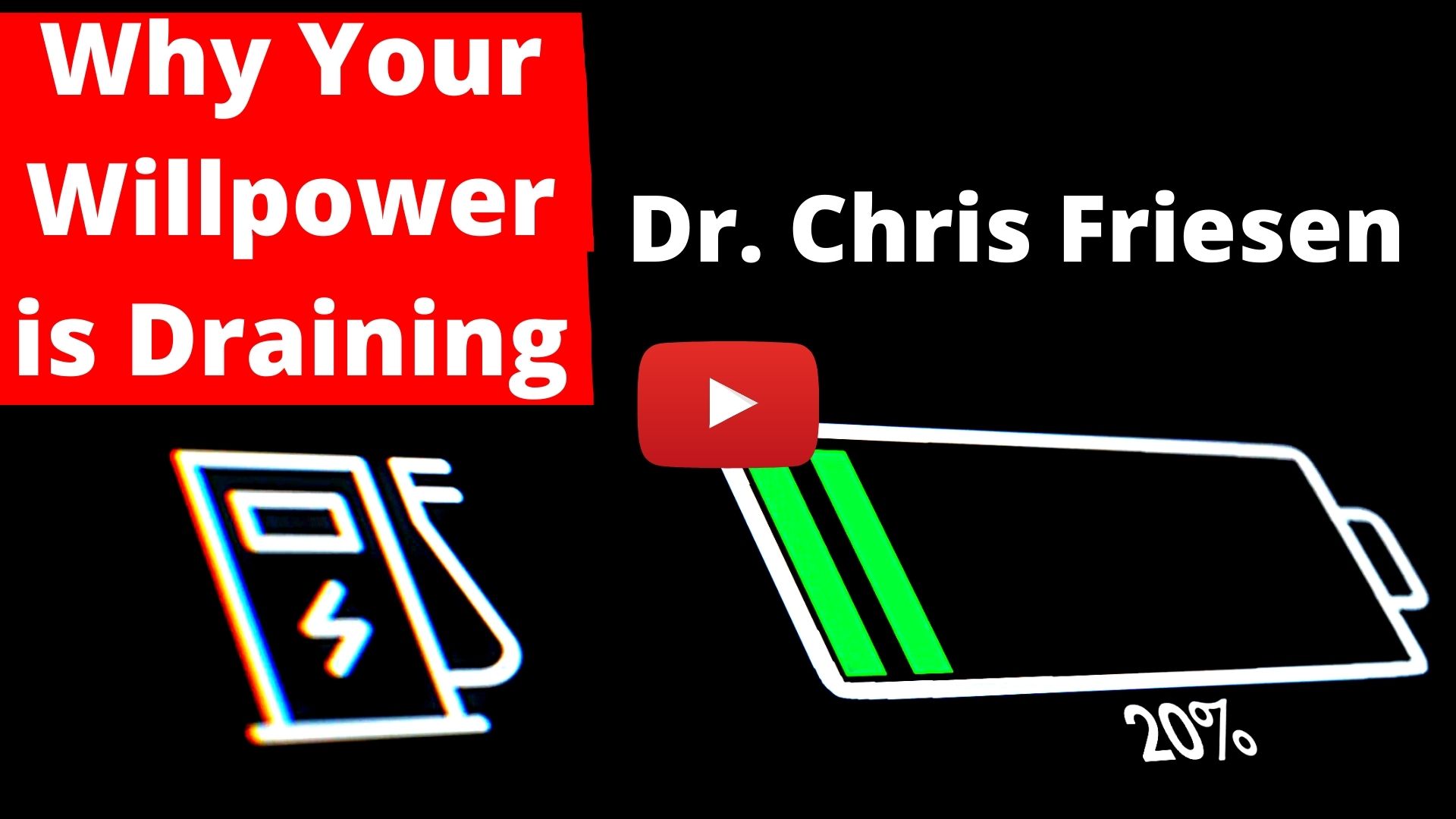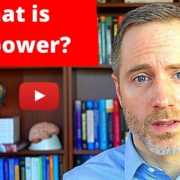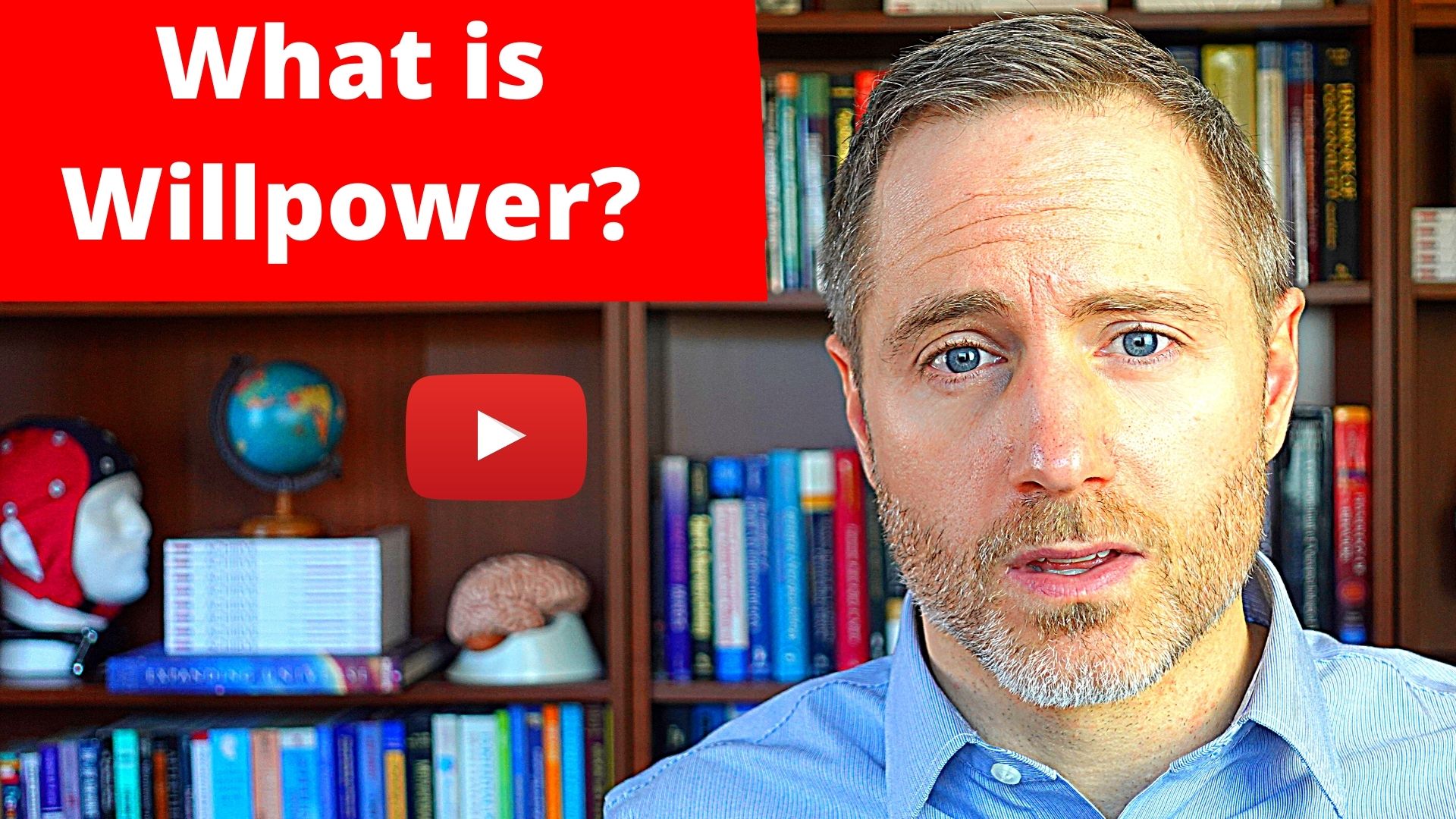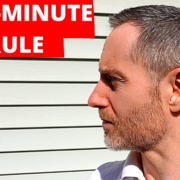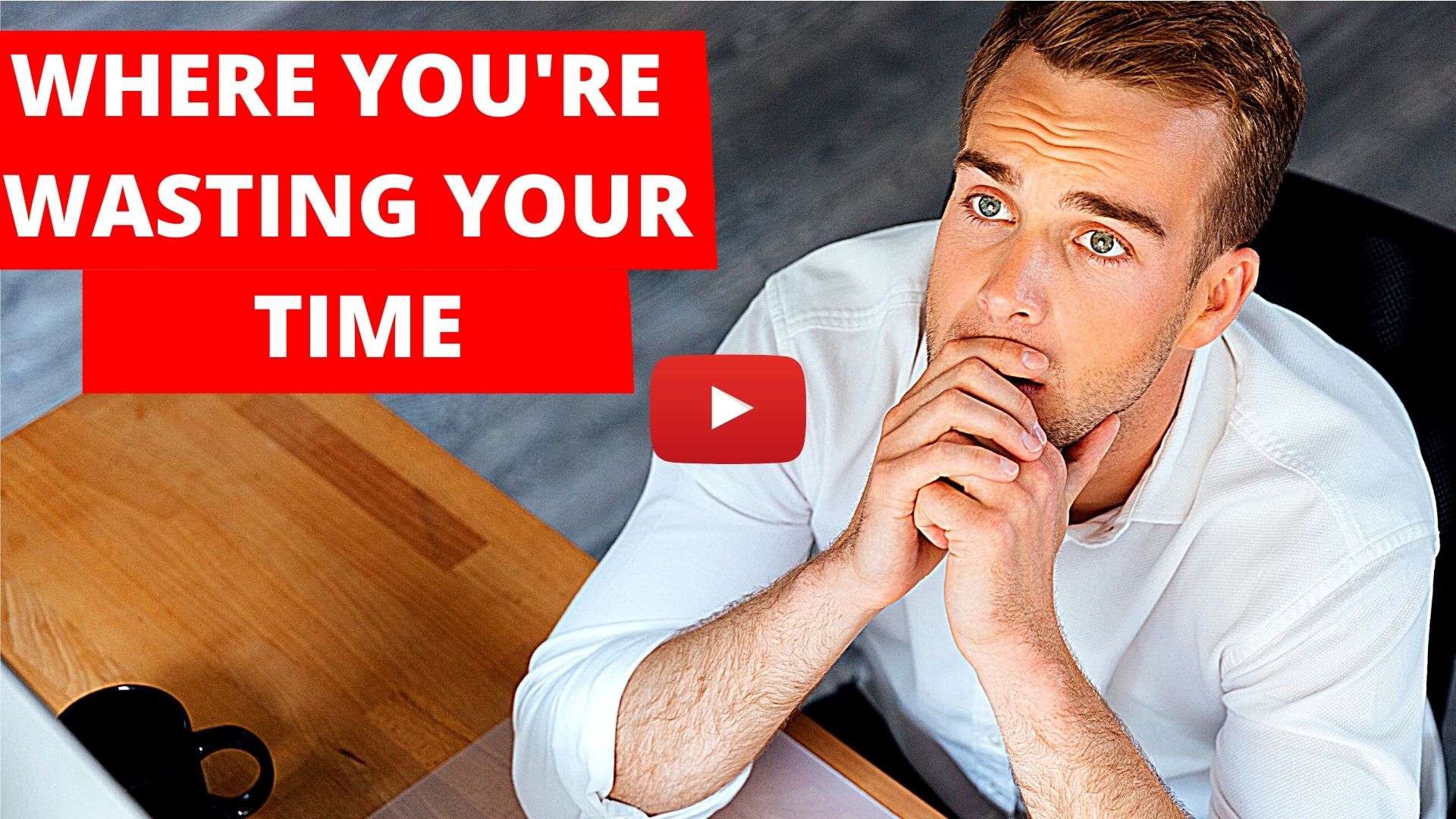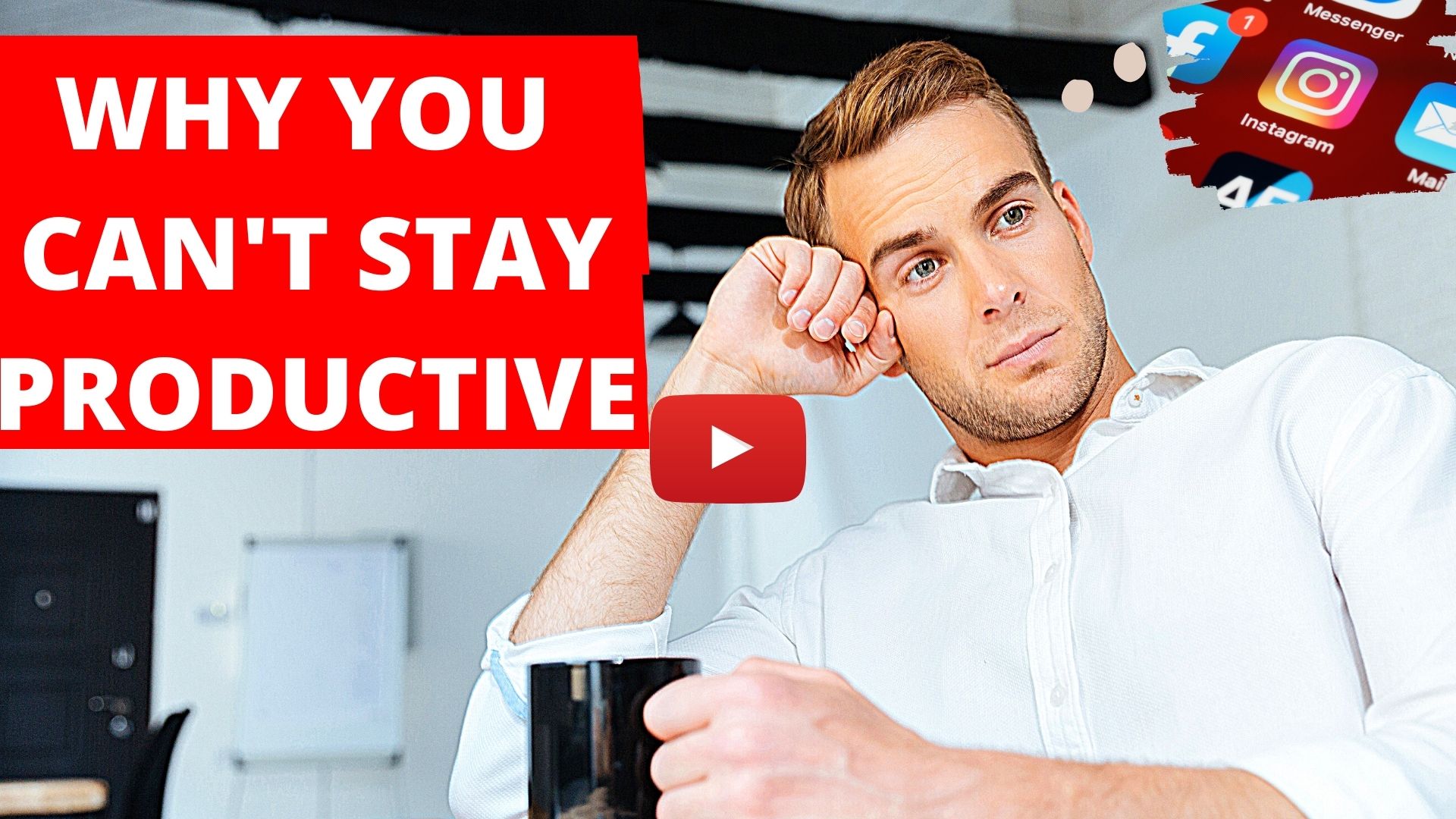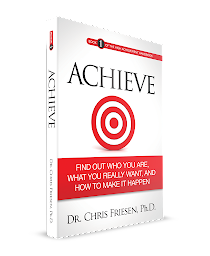VIDEO: Want to be Successful? You Need to Understand Willpower!
In this video, I talk about what willpower is, how it relates to concepts like grit and self-control, and how all 3 of these are part of the larger personality tendency of Conscientiousness or what I refer to as Motivation & Self-Control.
This is the first part of a multi-part video series on how to work with and around your willpower, how to strengthen it, and how to boost it.
Niagara Sports Report: Sport Psychology, Kids, & the COVID-19 Pandemic
Here my conversation with Rod Mawhood on the Niagara Sports Report: Sport Psychology, Kids, & the COVID-19 Pandemic
VIDEO: The Best Time Management Tool You’re Probably Not Using!
VIDEO: The Best Time Management Tool You’re Probably Not Using!
In this video, I review a time management paradigm developed by Dwight Eisenhower that you need to master in order to be productive and achieve your goals. This Time Management Matrix was popularized by Stephen Covey in his bestselling book The 7 Habits of Highly Effective People.
To see the Eisenhower/Covey Time Management Matrix, visit: https://commons.wikimedia.org/w/index…
VIDEO: Why You Can’t Stay Productive –Social Media & the Dopamine Reward Pathway
Do you have important things on your to-do list that you never seem to get to?
Do you seem to just run out of time each day or each week to work on them?
In this and upcoming videos, I’m going to show you why you can’t stay productive and what to do about it.
I bet you have number of things on your to-do list that you never seem to get to.
I bet these are projects or activities that are really important to you.
Maybe you set a goal to:
- start implementing a daily stress management strategy like meditation.
- start exercising after work each day
- write your first book
- Or maybe you set a goal to work on a side business so you can leave a job you hate.
But it just never happens. or at least not consistently.
You seem to just run out of time each day or each week.
You may wonder, “Where does the time go?” or “Why can’t I prioritize something so important to me?”
Prioritizing is getting harder and harder as technology advances.
We’re constantly bombarded with things competing for our attention:
- phone calls
- text messages
- emails
- social media updates, etc.
In this hyper-connected era, we are expected to respond instantly to many of these.
I too struggled with trying to stay productive.
I would have lofty goals that I never seemed to have the time to get to by the end of the week, and wonder where the time went.
I started to feel powerless and victimized.
I was constantly:
- checking my email
- responding to texts
- falling down the social media or Google search rabbit hole.
I wondered whether I had ADHD and just didn’t realize it until now.
I then woke up to what was going on.
No, I didn’t have ADHD. But being constantly distracted and feeling unable to stick with the tasks and goals you want to work on is not unlike having ADHD.
Turns out, every time you engage in your technology by doing things like checking email, texts, social media, and surfing the net, the dopamine reward pathway is activated in your brain.
Dopamine’s role in the brain is pretty complicated, but one of the things it controls is your motivation to seek out or search for things that are potentially rewarding or pleasurable.
Note I used the word “potentially”. The more unpredictable getting a reward or experiencing some pleasure is, the more the dopamine system kicks in.
And that makes you want to keep searching and checking.
Make no mistake, this mechanism in your brain is VERY STRONG.
All those text messages, emails, phone calls and such come at apparent random times, which enhances your dopamine response even more!
Psychologists discovered decades ago that the best way to control both animal and human behavior was through the use and timing of rewards.
They found that the best timing and frequency of providing rewards came when variable ratio schedules of reinforcement were used. Check the exact type of reinforcement
This is how slot machines work. You don’t hit the jackpot after a certain number of pulls or after a certain amount of time, you win after a changing number of pulls.
We now know that this is related to the dopamine response noted earlier.
And guess what? Checking email, texts, social media, and surfing the web reward us with a variable ratio schedule of reinforcement. So it’s no wonder we can’t get anything done!
You may have been told by your parents, spouse, or others who rarely use modern technology to simply “stop checking your phone!” While there is some wisdom here, it’s easier said than done.
It’s similar to an addiction. It’s not just about deciding not to check, because there are powerful brain mechanisms at play that are not under your full control.
The solution is NOT to rely on sheer willpower to resist the temptation to check.
Although willpower can be strengthened, it becomes weaker with use over the course of the day, and when we are tired or hungry.
So what’s the solution?
There are a number of strategies that I will cover in this and upcoming videos.
VIDEO: Dr. Friesen is interviewed by the Ottawa Senators Affiliate Brampton Beast
VIDEO: Dr. Friesen is interviewed by the Ottawa Senators affiliate Brampton Beast’s special series for the Blue Post Podcast, Mental Wellness Wednesday presented by Bell Let’s Talk. See full transcript below the video.
Anthony Fusco: Welcome to the Blue Post Podcast, ladies and gentlemen! I’m your host Anthony Fusco. This is a series of special episodes focusing on wellness and mobility in support of Bell, Let’s Talk. My guest today is Dr. Chris Friesen. How have the holiday’s been for you so far?
Dr. Chris Friesen: So far, so good! Thanks for having me on the show here. Yeah, I’ve taken two weeks off. And it’s, actually nice to do nothing for a while.
AF: Can you tell myself and everybody listening in a little bit about yourself and how you found yourself in this field?
CF: Yes! I’m a licensed clinical forensic and neuro psychologist here in Ontario. We were talking earlier, but the idea of a sports psychologist is not a licensed profession in Ontario. But there are certifications you can get. And so I’m by any stretch of imagination, I’m a sport and performance psychologist within Canada.
I played hockey as a goalie in Toronto, back in the 80s, and 90s. And I was always into sports. There’s no real good sports psychology programs in Canada, at least when I was going through schooling. And so you had to become a licensed psychologist first, which I still practice, about half of what I do is still neuro psychology and clinical psychology.
I work with police forces in both Hamilton and Niagara. And I’ve always been interested in success in when I was a teenager reading Tony Robbins, and the Seven Habits of Highly Effective People by Stephen Covey. These things really, I wish I actually read them earlier my hockey career, but I didn’t unfortunately.
Anyone who plays hockey knows that goalies are a strange bunch. There is a lot of superstitions and a big mental side of it. So I’ve always been interested in that. And in the last 10 years or so, I’ve been working a lot more with high level athletes, and others as well, like entrepreneurs, and executives to try and help them achieve their potential essentially.
AF: What would make a high level athlete seek you out for help?
CF: There are a number of common themes that come up with athletes that contact me; often it’s performance anxiety or just underperforming or getting nervous.
The other sports that are like Olympic wrestling, for example, or mixed martial arts, these athletes tend to get a lot of that performance anxiety whenever they compete.
People go through slumps, and that brings them to me. Occasionally, it’s motivation issues; they’re having trouble staying motivated. Now, during Covid-19, we are finding a lot of athletes are having a hard time staying motivated to train. A lot of athletes get injured as well, and then staying mentally strong during your injuries is tougher. But there’s a lot of athletes I see that have just problems even off the court or off the ice, where they find it difficult to manage relationships, or they have depression, anxiety, panic attacks, that kind of thing.
AF: Is there one thing that comes up more commonly than another? Is it is motivation? Is it injuries?
CF: Definitely the most common thing is performance anxiety. Negative emotions, especially anxiety is the number one motivator for humans and animals. Fear motivates us very well. When we’re feeling anxious this brings people to search for someone to help them get out of this.
Often coaches, they refer them to me, but this is it. It’s usually performance anxiety of some sort. They do really well in practice. And then they get on to during an actual competition or during a game or trial, and the performance drops. And the only difference if it’s not nutrition is not they’re not that’s not because they’re out of shape. Then we’re able to finally whittle it down to figuring out it’s usually the mental side of things.
AF: What does mental and physical health mean to you personally?
CF: There are a lot of aspects to this. First of all, we can’t be subtle. It’s difficult if you have a lot of mental health difficulties that are getting into that clinical realm of depression, too much anxiety, generalized worry, poor sleep, it’s all sub-optimal.
Performance health and mental health to me is different areas. First of all your sleep is optimized. Your physical activity, of course, your physical body is optimized. That means that measuring things like heart rate variability to determine whether you’re over-trained or not, is really important.
Having a clear understanding of your goals and values is extremely important. Because essentially, the biggest issue I see with athletes is they started with anybody, when it comes to success is basic.
I would define success as being able to get yourself to do things, even though you don’t feel like doing them, or you’re afraid to do them. And this usually comes from knowing our goals and values, knowing who we are, and what’s important to us.
I’m a neuropsychologist, which is a type of psychologist that specializes in the brain and I really think that brain health is extremely important. So you have to have your neurology on board, your physiology on board, and your psychology on board.
And I think when you have all those things, you’re going to function the way you want to function. And it’s extremely important to think of it that way as well.
AF: If you’re working with an athlete for the very first time, maybe they’re a little bit more guarded, they really don’t know what to expect at this point. How do you get them to open up and be vulnerable to you?
CF: That’s a great question. There’s individual differences in terms of how open athletes are with me and with any mental health professional or sports psychologist, the most important thing from my side of it is, is having a non judgmental, empathic, accepting attitude towards what they’re experiencing.
Nobody likes to feel judged. Actually, in sports, this is commonly how coaching is done. They basically point out everything you’re doing wrong. And there’s often a feeling of being judged by the media, by fans, by parents, by teammates, by coaches.
When it comes to being able to open up, as soon as you feel judged, we feel defensive; we don’t want to open up. So being accepting understanding and listening to them. And what they’re experiencing is the number one and the most important thing. So you have to feel safe, and be able to open up and then only then will you be open to strategies to potentially help you improve.
CF: In my experience, I would say for the most part, it’s the same. Different sports have different issues, some sports are more social. And some of the more specialist sports have more women and females; they can have more issues with interpersonal issues.
In my experience working with athletes, the most of the difficulties are pretty much the same. There’s a little bit higher prevalence, in my experience with eating disorders, with female athletes, in particular types of sports like gymnastics and figure skating.
AF: What about issues younger athletes would face compared to older athletes? Are they different or the same?
CF: With younger kids, I’ll be honest, for the most part, if someone’s under ten, and they’re brought by their parents for peak performance work. I usually don’t like that. I feel like at that point in one’s development, a kid’s development, they don’t need that extra pressure. They should be playing for the fun of the game. This concerns me because some kids are pushed into sports very early.
Think of gymnastics and even hockey and high levels. And there’s a lot of pressure on these little kids. And it’s not always good for them. So often the parents will bring little kids in, because they’re just not performing well. And they don’t know why they seem to be fine otherwise.
For example, in school, it’s just like on the ice, or whatever it may be, they’re not performing like they do in practice, this is usually the number one sign that there’s a big discrepancy.
So these kids sometimes have motivation issues, because they’re being told they have to do this, as opposed to it’s always not always coming from within.When you get to athletes who were you know, 16, 17, 18, 19 or 20 in hockey, this is the transition time, this is the time here, they’re going to make it or you’re not for most of them.
And so this is a time when athletes at that age, let’s say hockey players, for example, they’ll come to see me because they really, really want to make it and they want to make sure they’ve done all these other things like having a personal trainer or mastering their nutrition, etc. But their mental game is where they haven’t really done any work. So they’re usually coming in for that it’s usually performance anxiety at that point.
It’s very rare that an older athlete comes to see a sports psychologist. In my experience, it’s usually golfers, and they want to improve their golf game, and they know it’s mental.
These are guys who tend to be competitive. And sometimes they get too competitive. It doesn’t drive you towards seeking help. And when you come to see a sports psychologist, it’s going to take some work, right? There’s usually homework, things to work on between sessions to help improve just like any skill, and you have to work on it to get better.
AF: Does the level of sport play a factor? Would you be giving the same kind of answer to an NHL player coming to you, as opposed to maybe a 16-year-old AAA player?
CF: Often it’s similar! The higher-level athletes, the elite and pro athletes, they tend to have issues with consistency of performance. And that’s their concerns or slumps. So that’s usually a bigger concern with professional athletes. And then you get you know, higher up there, there’s, there’s a lot more scrutiny.
I mean, anyone who makes it to the NHL is probably at a decent amount of scrutiny in terms of coaches and fans, and people like this, knowing who they are. You get under much more of a microscope when you get to the pros. And that can be difficult for some people.
Then there’s the side of social media, people saying negative things about you on social media, but not just that, color commentators making comments, there’s lots of talk radio on hockey, hockey talk radio, for example, where they say some things that are difficult to hear.
Stuff like this can be really difficult to compartmentalize. So I sometimes try to teach them to be able to notice what they’re here what they’re hearing from these people. Is there anything I can use from this to make myself better? So those are kind of the bigger issues I tend to see.
AF: What are the different kind of ways to promote positivity with an athlete that you’re working with?
CF: Yeah, so there are a lot of mind myths out there in terms of positive thinking. People think that you should think you’re the best and portray unshakable confidence and always think positive. The human brain doesn’t work that way, as we all know.
When you hear this, we all think that there’s something wrong with us individually, and the athletes will feel this as well. They think I should be thinking of the best and have no doubts in terms of my how long I’m going to perform, etc. The reality is you don’t actually want super high confidence.
Let me give an example to the athletes I work with. Let’s say you had a twin brother who also played hockey, just as good as your exact same talent. And you could both have a tryout coming up in three months.
And you know, you have self-doubt. So your confidence isn’t perfect, but your brother has perfect confidence, you know, who’s going to get up at five in the morning to do more training the person who already knows he’s got it, or the person who doesn’t?
And it helps the athlete realize that self-doubt is their friend. Having full confidence isn’t good. Having confidence that if I work hard enough, I can be the best is different than I am the best.
The other thing is, if you just walk around and say positive affirmations, these things don’t tend to work, there was research on this, it just doesn’t tend to work.
It’s better to focus on what you can control. Let’s say a goalie is pitching a shutout, you don’t have full control over that. A guy could pass it across the ice, and the guy has a complete open net, he takes a one timer, you know what, in 100 times, you may dive in and tip it wide and stop it.
But the rest of the time the physics is impossible. Thinking like that, is just setting you up for failure, because eventually that puck goes in.
And once that goal goes in your mind, you’re going to have a hard time coming back from that. Instead, you’re imagining all the bad scenarios. You should be thinking more realistically, and planning what you can do is more important than trying to think positive.
AF: What is something that anybody listening to this can do either physically or mentally, maybe at the start of the day to be put into a good mindset for the rest of the day?
CF: I think setting aside some time every morning. But having a little five minutes, where it’s quiet. Whether it’s in the shower, or wherever this will be, and envisioning how you want your day to go.
And again, I don’t mean like just everything’s sailing by perfectly. But really thinking about what do I want to accomplish today? Who do I want to be? What do I want to represent? In other words, these are getting your goals and values, because we really want our goals and values to dictate what we do with our lives, not our moods, not the weather not what social media says and not what our own mind says we can and cannot do. We want our decisions about what to do to be based on our goals and values.
Identifying that and thinking, Okay, you know, what have you written down I haven’t written down my phone, for example, I tell the people I work with the same thing. The athletes, they have this written down usually in your phone in the notes section. And it’s like, you know, who, you know, what kind of hockey player do I want to be? Or what kind of sportscaster do I want to be? Are these are your values and goals and really bringing it to the forefront?
Have you ever had that experience where you decide you want to buy a Tesla and all of a sudden you start to see them everywhere. Because your friend got a Tesla, you’re like, Oh my gosh, that looks amazing. And you just see them everywhere. And it’s not that they’ve increased in the last 24 hours in terms of the number of people bought a Tesla and happened to drive by you. It’s that your brain is primed to notice the Tesla because you’ve been thinking about it.
Because there’s a ton of information that’s coming into our senses all the time our brain does most of its job is to filter things out that are not relevant and that are not congruent to how we think and feel.
You’re going to notice things that confirm this and ignore things that don’t bring you towards those goals or values. So I think that’s probably the best way to start your day.
AF: I do have one final question for you. Can you tell me what is the most rewarding part of your job? And what would the hardest part of your job be?
CF: The most rewarding part of my job is working with what I define as high achievers so whether they’re athletes or not, with people who have goals, and they’re trying to prove themselves and they accomplish the goals that they’re seeking to set out, that’s the most rewarding thing for me. The second part is when I’m working with clinical patients, who have severe problems like depression or anxiety. They then start to overcome these and go back to the life they actually want to live. Those are the most rewarding parts of my job.
There are a lot of potential difficult parts of my job. One part is to evaluate new police officers coming in through Niagara and Hamilton, and determining who is suitable and who is not from a mental health perspective.
And from just a personality perspective, some of these individuals, these younger guys and gals, they go to school through their criminology degree they do their Police Foundations, they do all this stuff, they volunteer, and some of them are just not suitable and I have to make that call in for to for the safety of the public.
It’s also in the applicant’s best interest. But that makes me sad. I don’t like doing it, but I have to do it. And it’s kind of squashing someone’s dreams. But at the same time, it wasn’t the right dream for them. Unfortunately, just like a coach, or management who has to cut a player. That’s a difficult thing to do. And those are the hardest parts in my performance side of my job.
AF: Dr. Friesen, thank you so much for being the guest today. I think this was fantastic. This has been another episode of the Blue Post Podcast. I’m Anthony Fusco. Thank you everybody for listening.
Video: Dr. Friesen interviewed for the Champion Mindset Summit
Dr. Friesen was an invited guest for the Champion Mindset Summit. He was interviewed by Sue Sundstrom and spoke about various biohacks for peak performance and productivity (e.g., caffeine, supplements, sleep, cold water exposure, mindsets, etc.). To watch (~35 minutes long) click here:
Mindhacker’s Radio: Dr. Chris Friesen– Neurofeedback QEEG Brain Mapping, HRV Training, Photobiomodulation, & Peak Performance


On This Episode of Mindhacker’s Radio:
- Dr. Friesen Discusses:
- Neurofeedback
- QEEG Brain Mapping
- HRV Training
- Photobiomodulation
- Discussion on Sports Performance
Dr. Chris Friesen Biography:
Dr. Chris Friesen, Ph.D.., C.Psych, BCIA-EEG is a licensed clinical, forensic, and neuropsychologist who works with children, adolescents, adults, and seniors. He is also a sports and performance psychologist and neuropsychologist. He is also board certified by the Biofeedback Certification International Alliance for EEG biofeedback, also known as neurofeedback.
Dr. Friesen (or Chris) is the author of ACHIEVE: Find Out Who You Are, What You Really Want, And How To Make It Happen. He is also a contributor for Success Magazine and has published articles on peak performance, concussions, and biohacks for healthy brain aging).
Dr. Friesen has always been fascinated by successful people and those who have overcome adversity. His training and experience crosses a broad spectrum of psychological and neuropsychological difficulties including working with individuals with anxiety, depression, personality disorders, dementias (e.g., Alzheimer’s disease), brain injuries (from sports concussion to severe traumatic brain injuries), ADHD, and those involved in the criminal justice system (i.e., offenders of all types). He has worked clinically in a university psychology clinic, psychiatric hospital, rehabilitation hospital for those with brain injuries, geriatric hospital, prison and in private practices. He believed that to truly understand success and potential, he needed to thoroughly understand and work with people of all types including those who were at their lowest points and those who were not living up to their potential.
He currently splits his time equally between his clinical practice (Niagara Neuropsychology) and peak performance practice (Friesen Sport & Performance Psychology). At Niagara Neuropsychology he provides both neuropsychological and psychological assessment and treatment services for children, adolescents, adults, and seniors. He specializes in psychological (e.g., depression and anxiety) or brain-based difficulties (e.g., concussion, TBI, stroke, seizure disorders, ADHD, age-related cognitive changes, early stages of Alzheimer’s disease/dementia) and uses neuromodulation techniques including neurofeedback (i.e., EEG biofeedback), peripheral biofeedback, and electrical brain stimulation [CES, tDCS] and evidence-based psychological treatments including Acceptance & Commitment Therapy (ACT) and Cognitive Behaviour Therapy (CBT).
At Friesen Sport & Performance Psychology he helps professional, national/Olympic, and up-and-coming elite athletes, as well as other high achievers such as professionals, police officers, entrepreneurs, executives, academics, musicians, and writers, achieve their personal and professional potential by helping them achieve their goals and improve their performance and productivity through a combination of psychological strategies, neuromodulation interventions (such as neurofeedback, audio-visual entrainment, cranial electrotherapy stimulation, etc.), and biofeedback training. He also provides psychophysiological stress testing and EEG brain mapping to tailer his approach to each client.
Where you find Dr. Friesen:
https://www.facebook.com/NiagaraNeuro/
@NiagaraNeuro on Twitter
https://www.facebook.com/FriesenPerformance
@FriesenPerform on Twitter
Articles by Dr. Friesen:
-
Perseverance: Newsletter of the CPA Sport and Exercise Psychology Section
-
Behavioural and Complementary Interventions for Health Neurocognitive Aging
Podcast Topics of Discussion/Resources:
-
Neurofeedback:
-
Personal Devices:
-
-
Heart Rate Variability Training
-
Personal Devices
-
Additional Information on Neurofeedback and Biofeedback:
Please make sure that you submit a question to Dr. Wiles:

